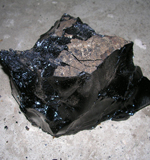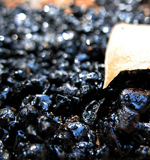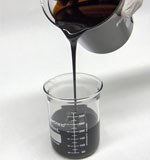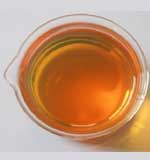







OIl & Petroleum
 |
BituroofIt is an easy brushable bitumen based compound can be applied cold or hot, formulated for various applications like crack filling, leakage in masonry works, wooden structures etc. |
|
 |
Bitu RopeThis is a bitumen based greasy compound for wire ropes, ideal for small and medium fishing vessels as a whole body coat for better surfing in water and for better fuel efficiency and prevent the wood/ metal parts / rope from heavy climatic conditions. |
|
 |
Bitu SealIt is a special grade blown bitumen with sufficient flexibility and adhesive quality suitable for the sealing of auto motive batteries |
|
 |
Bitu X PandThis is silver coloured aluminum paint with non-corrosive property ideal for metallic structures, oil, gas pipelines in high sensitive areas. |
|
 |
BitusilverThis is Silver Coloured Aluminium Paint With Non Corrosive Property Ideal For Metallic Structures,Oil,Gas Pipelines In High Sensitive Areas. |
|
 |
Bitublack- Anticorrosive PaintThis is generally known as "black japan" it prevents corrosion. Long lasting and with best hydrophobic qualities. Ideal for the painting of automotive chassis. |
|
 |
Dr.Bond- Rain Guard AdhesiveThis is ideal as a sticker for rain guarding the latex without harming the trees.it is cold applied and having best adhesive quality. |
|
 |
Cold Stick CompoundEasy burstable bituminous compound, ideal for water proofing buildings, wooden, masonry works etc. |

A non-crystalline solid or viscous material having adhesive properties derived from petroleum either by natural or refinery processes, and substantially soluble in carbon disulphide. Bitumen are black or brown in color. This may occur naturally but are usually made as end products from distillation of, or extracts from, selected petroleum oils.
There appears to have been little development in materials used until the 19th century when the refining of bitumen from crude petroleum oils began. The vast majority of bitumen used by today’s construction industry is refined bitumen, derived from crude oil. It is a sophisticated product available in many forms and grades developed by the bitumen industry for specific uses. The process of refining bitumen was pioneered in the early 1900s in the United States, giving rise to a myriad of contemporary industrial application.
Bitumen is obtained essentially by distillation of a blend of crudes containing at least one bitumen crude. The others, which are lighter, go to satisfy requirements for different types of fuel and combustibles. Contrary to a common but mistaken idea, bitumen is not an oil residue that the petroleum industry wants to get rid of at little cost. In reality, to produce bitumen of good quality with constant properties, refiner meticulously selects one or more bitumen crude, following very strict internal approval procedures.

Of the 1300 types of crude oil classified worldwide, only 10 % are suitable for producing bitumen capable of meeting the specifications for use. These types are known as bitumen crude. In short , bitumen is a blend of hydrocarbons, solid and semi-solid and brown or black in colour. Having been used as an adhesive, sealant and waterproofing agent for over 8,000 years, its being used in the construction and maintenance of roads, airfields and all areas where asphalt is used; roofing; damp proofing; dam, reservoir and pool linings; soundproofing, pipe coatings, paints, and many others. Asphaltic bitumen is valued for a variety of properties. It is water proof, ductile, adhesive, chemically inert and resistant to atmospheric exposure and the effects of dilute acids and alkalis.
Bitumen is produced from selected crude oils through a process of Fractional Distillation. The crude oil is heated to temperatures of between 300 and 350 degrees Celsius and fed into a distillation column allowing the lightest fractions of the crude to separate, through vaporization, from the heavier fractions, which remain liquid.

The higher boiling point fractions are then drawn-off via a heat exchanger and enter a vacuum distillation column. This process produces a “short residue” that is used to manufacture several grades of bitumen. The pressure and temperature conditions within the vacuum process will determine the hardness of the short residue, and. The short residue may be further modified by ‘air blowing’ in which air is passed through the residue at temperatures of 250 – 300 degrees Celsius. site. As an up-to-date business, we want to give you the opportunity to stay in touch with our company and our offers. A new content management system will enable us to always keep you up to date.
Fuel Oil is a fraction obtained from petroleum distillation, either as a distillate or a residue. Broadly speaking, Oil is any liquid petroleum product, which is burned in a furnace or boiler for the generation of heat or used in an engine for the generation of power, except oils having a flash point of approximately 40 oC (104 o F). Oil is made of long hydrocarbon chains, particularly alkanes, cycloalkanes and aromatics. The term Fuel Oil is also used in a stricter sense to refer only to the heaviest commercial fuel that can be obtained from crude oil, heavier than gasoline and naphtha.
It is a volatile distillate oil intended for vaporizing pot-type burners. It is the kerosene refinery cut that boils off right after the heavy naphtha cut used for gasoline. Older names include coal oil, stove oil and range oil.

It was a distillate oil for burners requiring low-viscosity fue. Oil is a commercial heating oil for burner installations not equipped with preheaters.It may be obtained from the heavy gas oil cut.
Residual fuels represent the heavy yields from the refining processes. Straight-run fuel oils are produced solely from atmospheric distillation and are generally used as an intermediate feedstock for further processing within the refining system to increase the yields of lighter products.
Cracked fuel oils are used as fuel for power generation, marine bunkers and large industrial heating plants. Generally categorised between high and low-sulphur grades, with the latter containing less than 1.0 % sulphur by weight.

The purity of base oils means that your additive packages can be optimized to meet performance objectives at lower treat rates and reduced cost. Your formulators won't have to worry about compensating for the quality of the base stock in your finished products. You have more freedom in new product development. Our Base oils can improve the performance of your finished engine oils and other lubricants. Better viscosity control and reduced volatility help cut lubricant consumption and provide fuel economy benefits. This also enhances cold start operation. Your customers can expect improved equipment protection and extended lubricant life due to superior oxidation and thermal stability.
Are highly refined paraffinic oils that are processed to meet high saturation and low sulphur concentration. These products have good solubility characteristics for additives in product formulation.
Clients can avail from us the bulk quantity of Base Oil. Base Oil is required in various industries for diverse applications. We acquire the Base Oil from reliable dealers and ensure that it is stored in well-organized warehouse thereafter.